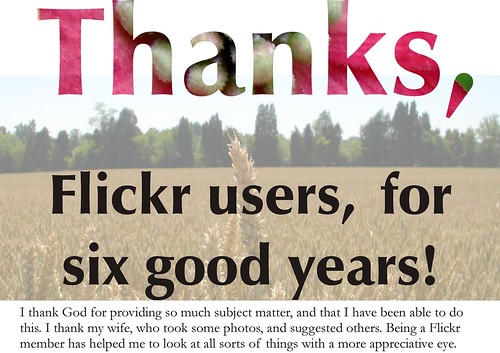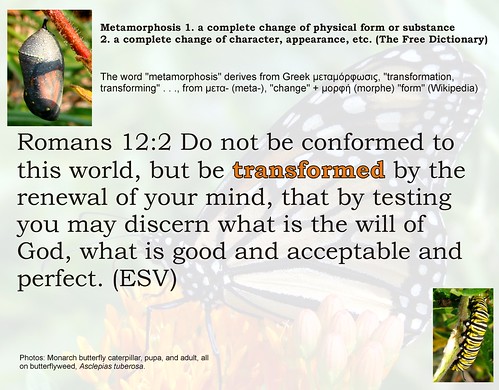The Bible is a complex book. Some parts of it are difficult to understand. (Mark Twain is supposed to have remarked that it wasn't the parts he didn't understand that bothered him, but the parts that he did. Perhaps he was referring to some of the things Jesus said in the Sermon on the Mount, where he put forward a radical morality.)
I'm not an expert on Biblical interpretation. But I think there are some principles that we should follow in interpreting the Bible. Here they are:
1) Don't take something literally it if wasn't meant to be. If a phrase is poetry, or irony, or a figure of speech, then it may not have been meant to be taken literally. For example,
Psalm 46:2 speaks of not being afraid even though the mountains be moved into the sea. The whole Psalm is poetry, and this phrase seems to have been a figure of speech. See
Psalm 114, for another example.
2)
Don't use a single verse, phrase, or sentence without considering the context, and what the rest of the Bible says on that subject. For example, in
Romans 11:26, Paul says that all Israel will be saved. Does that mean that all Israelis will go to heaven? Almost certainly not. In chapter 10 of the same book, Paul says that his desire is that the Jews be saved. He also calls them a disobedient people. And, more importantly, Paul's message in the entire book, indeed in all his letters, is that salvation comes by faith in Christ as savior, not by birth.
This principle should be applied to many passages in the Old Testament. The Jews were under a different regime than Christians. The Jews were often commanded to destroy other nations. Christians aren't. In fact, based on the New Testament, God seems to deal much less with nations than in the Old, rather now dealing with us as individuals. Various Old Testament laws, for example dietary laws, do not apply to Christians, unless they have individual convictions about these matters. The New Testament makes that clear. (Some moral laws, first introduced in the Old Testament, do apply to Christians, but that's another topic.)
3)
Be careful in interpreting prophecy. The New Testament points out some examples of fulfilled prophecy about Jesus. Those, it seems, we can understand. The Old Testament has some examples of the same sort of thing. But be careful about prophecy that has yet to be fulfilled. Very careful.
One of the most quoted prophecies about Jesus is in
Isaiah 7:14, where it says that Jesus will be born to a virgin. Notice that I linked to the entire chapter. The reason is that I want you to look at the context. That prophecy, which the New Testament tells us is about Jesus, must not have seemed to be about that at all, to those who first heard it, and perhaps even to Isaiah, who spoke it. It's in the middle of a prophecy to King Ahaz about two enemy nations. Not only that, but it seems to be saying that the boy born to a virgin will, at first, not know the difference between good and evil. How could Ahaz, or even Isaiah, have understood that part of this prophecy would be fulfilled after Ahaz was long dead? And that the fulfillment would be in a Messiah Redeemer? There are many other examples. Revelation, and the other prophecies about Christ's return, may be as obscure as Isaiah 7, at least until their fulfillment. How can we be sure that we really understand what they mean, as, for example, the
Left Behind franchise seems to claim? (For a critique of the dispensational interpretation found in those books -- and in many other places -- by a New Testament scholar, see
here.)
4) Don't ignore or reject scripture that you don't like. In fact, I suppose that sections of the Bible that are clear, for example about gossip being a sin, and that we don't like (if we like to gossip) are the ones we should pay the most attention to!
I should carefully consider that some one else's interpretation, be that someone an individual or a denomination with doctrines somewhat different than mine, might be correct. I should consider that God may be trying to discipline or instruct me, through scripture that I don't particularly like.
Thanks for reading! Read the Bible. Carefully and prayerfully.




